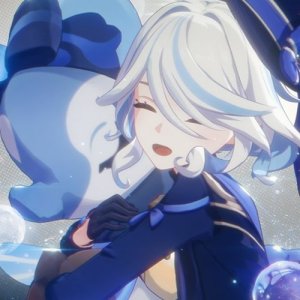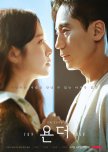As a Beyond Evil refugee, I am compelled to check out anything by Shin Ha Kyun, and I finally got around to watching this last night.
The premise was undoubtedly good, and this short series tackled on some interesting and moving themes of love, grief, memories, fear of death and loss, and the hope of finding a small light of knowledge (that is supposed to bring us comfort and peace) in the unknown, with the help of science. All of this, with the use of our current technological progress (think Virtual Reality and Neuralink) and some sci fi, to take it a step further and imagine an uncanny near–future where our own brains, feelings and memories are turned into a commodity.
Yonder, in English, means 'at a great distance away'. Something you can see but can't quite reach yet. It was a really clever name not only for this series but also for the supposed promised heaven to anyone willing to euthanize themselves and insert a small biochip in their neck. Our main character lived staring right ahead at death as his wife's health slowly declined and withered, until she finally reached that place just yonder. And then, beyond that—once again—he finds something new, something yonder, someplace he struggles to accept but eventually makes the final leap to reach, just to reunite with his wife.
Looking at it from this perspective, it is a beautifully heartbreaking story that touches something deep within us and makes us confront our humanity. It's in the execution where it falls short. I feel like this series could have done so much better with its limited runtime. Yet, even with less than half the episode length of a typical kdrama, it still feels drawn out with unnecessary plot points. And I could have ignored my moments of cringe at the hacking genius trope and could have enjoyed this more with a suspension of disbelief (the time spent showing the main character's interactions with other grieving families could have either developed them better, or been used to expand a little bit on how and why the organ donor lady joined our main duo. Both these could have done so much for this work.) if this series didn't make me stop at each point to wonder if this was just plain lazy writing or I'm expecting too much. I understand this is not an easy genre so I don't want to be too critical and deter someone else from experiencing this because it does have moments where it shines.
There was a special and small moment where I felt like I was thrown into The Good Place again, a series very dear to me, so just for that, I would say this was worth my time and attention. But otherwise, I could not help but skip 5 second per 5 second and I don't feel like I missed anything significant. The screenwriters could have used their time to really dig into what they wanted to say and delve more into the characters, instead of focusing on a plot that seems to give prominence to their weakness in writing.
The premise was undoubtedly good, and this short series tackled on some interesting and moving themes of love, grief, memories, fear of death and loss, and the hope of finding a small light of knowledge (that is supposed to bring us comfort and peace) in the unknown, with the help of science. All of this, with the use of our current technological progress (think Virtual Reality and Neuralink) and some sci fi, to take it a step further and imagine an uncanny near–future where our own brains, feelings and memories are turned into a commodity.
Yonder, in English, means 'at a great distance away'. Something you can see but can't quite reach yet. It was a really clever name not only for this series but also for the supposed promised heaven to anyone willing to euthanize themselves and insert a small biochip in their neck. Our main character lived staring right ahead at death as his wife's health slowly declined and withered, until she finally reached that place just yonder. And then, beyond that—once again—he finds something new, something yonder, someplace he struggles to accept but eventually makes the final leap to reach, just to reunite with his wife.
Looking at it from this perspective, it is a beautifully heartbreaking story that touches something deep within us and makes us confront our humanity. It's in the execution where it falls short. I feel like this series could have done so much better with its limited runtime. Yet, even with less than half the episode length of a typical kdrama, it still feels drawn out with unnecessary plot points. And I could have ignored my moments of cringe at the hacking genius trope and could have enjoyed this more with a suspension of disbelief (the time spent showing the main character's interactions with other grieving families could have either developed them better, or been used to expand a little bit on how and why the organ donor lady joined our main duo. Both these could have done so much for this work.) if this series didn't make me stop at each point to wonder if this was just plain lazy writing or I'm expecting too much. I understand this is not an easy genre so I don't want to be too critical and deter someone else from experiencing this because it does have moments where it shines.
There was a special and small moment where I felt like I was thrown into The Good Place again, a series very dear to me, so just for that, I would say this was worth my time and attention. But otherwise, I could not help but skip 5 second per 5 second and I don't feel like I missed anything significant. The screenwriters could have used their time to really dig into what they wanted to say and delve more into the characters, instead of focusing on a plot that seems to give prominence to their weakness in writing.
Vond je deze recentie nuttig?
























